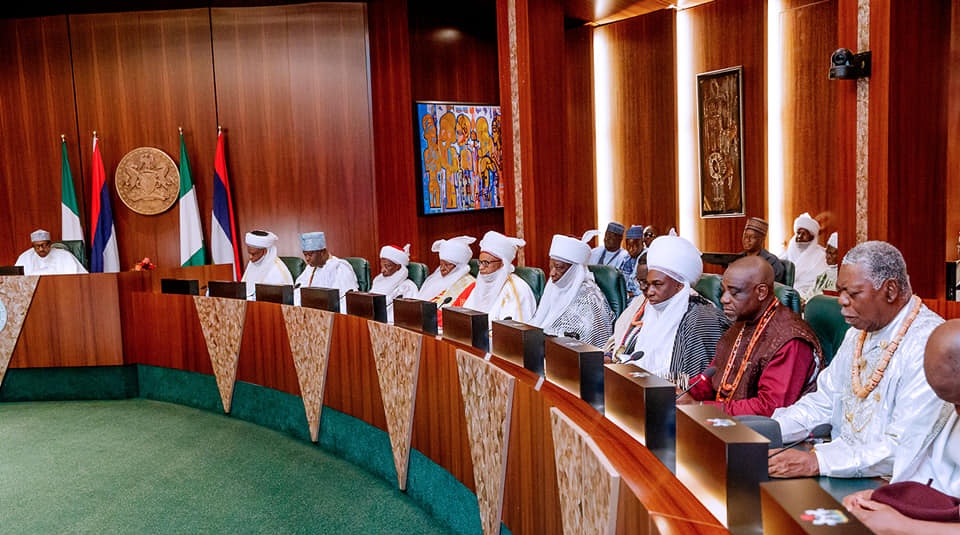
The Niger State Council of Traditional Rulers is a significant body in Niger State, Nigeria, comprising paramount traditional rulers from various emirates and chiefdoms within the state. It serves as an advisory council to the state government and plays a crucial role in maintaining peace, promoting cultural heritage, and fostering community development.
Honorable Chairman
His Royal Highness, Alhaji (Dr.) Yahaya Abubakar CFR, the Etsu Nupe and paramount ruler of the Nupe Kingdom, is currently the Chairman of the Niger State Council of Traditional Rulers. He has held this esteemed position since his ascension to the throne in 2003. His leadership of the council is a testament to his influence and respect among his peers and the state government.
Composition
The Niger State Council of Traditional Rulers is made up of the various Emirs and Chiefs recognized by the state government. While the exact number and titles can vary, it typically includes first-class Emirs and Chiefs from the major emirates and chiefdoms in Niger State. These traditional rulers are custodians of their respective cultures and traditions, and their representation on the council ensures a broad perspective on matters affecting the diverse communities within the state.
Roles and Responsibilities
The Niger State Council of Traditional Rulers plays a multifaceted role in the state's governance and socio-cultural landscape. Their key responsibilities include:
- Advisory Role: They advise the state government on matters related to traditional affairs, security, peace, and development. They serve as a vital link between the government and the grassroots.
- Conflict Resolution: Traditional rulers are often the first point of contact for resolving disputes and conflicts within their communities. The council facilitates peaceful coexistence among different ethnic and religious groups.
- Cultural Preservation: They are custodians of the cultural heritage, customs, and traditions of their people. The council promotes and preserves these values, ensuring they are passed down through generations.
- Community Development: They are actively involved in mobilizing their communities for development initiatives, including agriculture, education, healthcare, and infrastructure. They encourage self-help projects and collaborate with government and non-governmental organizations.
- Security: Traditional rulers play a crucial role in intelligence gathering and community policing, contributing to the overall security of the state. They work with security agencies to prevent and mitigate crime.
- Mobilisation: They mobilize their subjects for government programs and policies, ensuring effective implementation and public participation.
- Maintaining Law and Order: While not holding judicial powers in the modern legal system, they maintain traditional law and order within their domains, often through informal justice systems.
Recent Activities and Significance
The Niger State Council of Traditional Rulers, under the leadership of the Etsu Nupe, remains highly active in addressing contemporary issues facing the state and the nation. Recent activities highlight their continued relevance:
- Advocacy for Constitutional Role: The Etsu Nupe and, by extension, the council, consistently advocate for a more defined constitutional role for traditional rulers in governance. They believe that their proximity to the people and deep understanding of local dynamics make them critical stakeholders in policy implementation and community engagement.
- Focus on Food Security and Agriculture: In light of current national challenges, the council has been vocal in promoting agricultural development and food security. The recent colloquium on agriculture and the launch of the Etsu Yahaya Abubakar Endowment Fund, organized by the Etsu Nupe, underscore this commitment. They urge the government to involve traditional institutions in agricultural policies to ensure success.
- Security Engagement: The council continues to collaborate with the state government and security agencies to address insecurity, particularly banditry and kidnapping, which have affected parts of Niger State. They emphasize the importance of traditional rulers' local knowledge in intelligence gathering and conflict resolution.
- Youth Empowerment: The Etsu Nupe's foundation, which aligns with the council's broader goals, focuses on youth empowerment through education, skills acquisition, and agricultural engagement, aiming to reduce youth restiveness and promote economic self-reliance.
- Infrastructure Development Advocacy: The council advocates for the revival of key infrastructure projects, such as the Baro Inland Port, recognizing their potential to unlock economic opportunities for the state and region.
In essence, the Niger State Council of Traditional Rulers serves as a vital institution that bridges the gap between traditional governance and modern administration, contributing significantly to the stability, development, and cultural richness of Niger State.